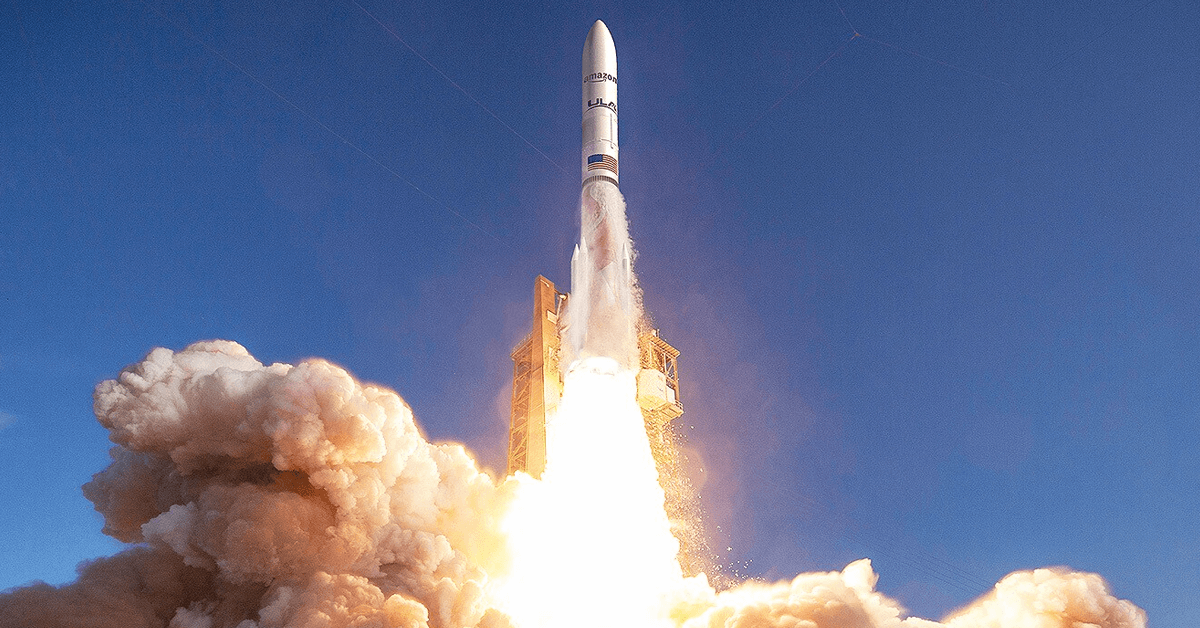Amazon has launched the first test satellites for its broadband network initiative, Project Kuiper, in a move to keep up in the evolving satellite-based internet sector, TechCrunch reported on Friday.
Launched from Cape Canaveral Space Force Station in Florida, the satellites represent the first two of more than 3,200 planned satellites in the low Earth orbit constellation sent into space. Once deployed, the constellation is expected to enhance global internet access.
The two satellites took flight aboard United Launch Alliance’s Atlas V rocket, which was selected for its reliability. The launch marks the beginning of Amazon’s journey into this market, with plans to start offering service by the end of next year.
Amazon’s endeavor places it in direct competition with SpaceX, led by Elon Musk, which has already made significant strides with its Starlink satellite internet program. Since its initial test in 2018, SpaceX has successfully deployed over 5,000 Starlink satellites using its Falcon rockets, launched from sites in Florida and California.
While SpaceX currently leads the satellite internet race, Amazon, led by founder Jeff Bezos — who also helms rocket company Blue Origin — continues to take steps into the field of space-based communications.





